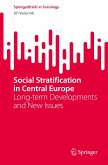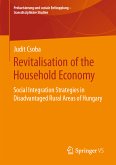The European Union has developed a range of instruments to promote democracy and human rights worldwide. However, the success of its democratization efforts remains questionable in countries that lack an EU membership perspective. The case of post-soviet Central Asia, where the EU declares democracy promotion among its key priorities yet is confronted with unfavorable domestic conditions for democratization and often fails to follow through, is an eye-opening example. Vera Axyonova`s study offers the first comprehensive evaluation of the micro-level effects of the EU engagement in Kyrgyzstan and Uzbekistan and examines the factors that have made the EU efforts more or less successful in Central Asia.
"Vera Axyonova s book offers an insightful and refreshing analysis of the European democratization strategy in Uzbekistan and Kyrgyzstan. The book is a must-read for all those interested in understanding the very limited success of EU democratization tools in Central Asia and the challenges that European institutions face in their promotion of a value-based agenda."-Marlene Laruelle, Elliott School of International Affairs, George Washington University








